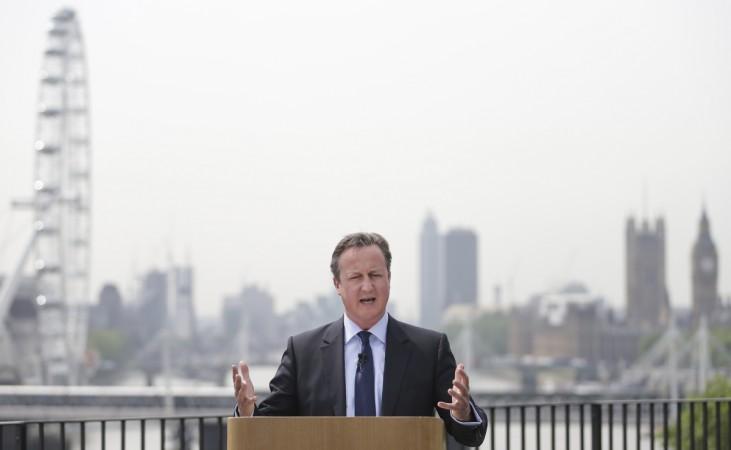
With less than 24 hours to go before the United Kingdom referendum, Britishers remain divided among the two camps of "Vote Leave" and "Remain." Despite multiple polls, it remains unclear which way the vote would swing on June 23. The neck-tand-neck competition between the two blocs has led to speculation that a second referendum on the U.K.'s membership to the 28 nation European Union (EU) is possible.
British Prime Minister David Cameron is campaigning hard for the U.K. to remain a part of the EU. He accused "Brexit" (a portmanteau of "Britain" and "exit") campaigners of narrowing down the debate to influx of migrants to Britain. United States President Barack Obama, who recently visited the U.K., urged the country to vote in favour of "Remain."
If Britain decides to stay in the EU, the deal brokered with the 28-nation bloc by Cameron will come into place.
The Vote Leave campaign is critical of Cameron, saying the new caps on immigration will not make any significant change, and neither would it bring greater independence for the country.
"It would be a shock for the EU that would require mutual assurances that the EU continues to stick together and that a very successful decades-long process of integration doesn't in the end turn into disintegration," German Foreign Minister Frank-Walter Steinmeier was quoted as saying by Agence France Presse last week.
Citizens of the U.K. have been growing negative about its membership to the 28-nation bloc as migrants from Eastern Europe have been making way to the island country.
The changes, if the country votes for exit, will be short and long-term. Among the most immediate consequences would be David Cameron's resignation as Conservative Party leader. According to speculation, he will not last "more than 30 seconds" if the "Remain" campaign fails.
A thin margin can push the nation to go for a second referendum, which would further affect markets.
Migration to Britain will become a difficult process in case of Brexit and with the drop in immigration, there would be a dearth of labour for the construction and service industries.
Scotland could push for secession from the U.K. as it is a supporter of the "Remain" campaign. The hard-brokered peace in North Ireland could also be at risk following Brexit, according to AFP.
The immediate fallout of the vote would be a downgrading of the pound, rise in inflation, higher interest rates, high labour cost and a slowdown in growth by 1-1.5 percent.
The divorce from the EU, some experts have said, can take almost two years to finalise.
The European Union has said the U.K. will be treated as a third party and no exceptions will be made for it in case of Brexit. The U.K. will also have to broker separate bilateral agreements with the 27 nations of the EU in that case.
Exit campaigners argue that red-tapism of the EU is hampering growth in Britain. However, the exit would cut access to the Single Market of the EU. Leaving the EU, which ensures free movement of goods, services and capital, would effectively stop all such movement.
Businesses have already threatened to move to France or Germany, even though pro-exit campaigners have argued that Brexit would invigorate the British economy and the democracy. The limitations on the country, growing influence of Brussels and a move towards a unified Europe eggs on the exit campaign.
Britain's exit will also have an adverse effect on the EU. It will not, however, lead to a recession in the remaining 27 countries, unlike the U.K., wrote Jacob Funk Kirkegaard, senior fellow at the Peterson Institute for International Economics, in a New York Times opinion piece.














